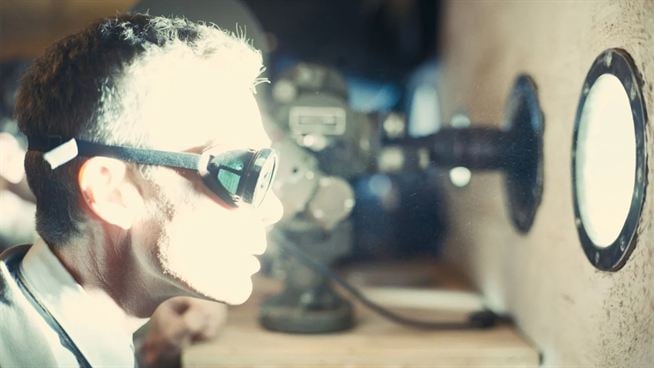
Richard King is one of Hollywood’s sound legends. Since the 1980s and action films such as “Delta Force” with Chuck Norris and “Murphy’s Law” with Charles Bronson, the sound designer and sound engineer has been giving films the right acoustic accompaniment. This has already earned King four Oscars – for ‘Master & Commander’ and for three collaborations with Christopher Nolan: ‘The Dark Knight’, ‘Inception’ and ‘Dunkirk’. The fifth golden boy could soon follow – for “Oppenheimer”.
“Oppenheimer” as 4K Blu-ray on Amazon*
Because such as King and Christopher Nolan The use of sound to draw us as an audience into the film and especially the thoughts of main character J. Robert Oppenheimer is quite unique. As part of a major press event in Los Angeles for the home cinema release, we wanted to know from Richard King not only how they achieved this, but also how they ensure that ‘Oppenheimer’ also sounds good at home. Below you will find our interview, which will hopefully give you some great insight into an area of filmmaking that receives far too little attention.
I don’t want the public to notice my work
Richard King: We worked very, very hard to use sound in a way that would engage the audience and become part of that world. You know, like Chris [Nolan] If he had been able to realize his ideal vision, we would have used only the production sound from the set for the entire film. He prefers that. He doesn’t like looping sound or adding similar effects afterwards.
We therefore tried to make the entire sound design sound like the production sound sounds. Everything should look like it was shot on location on the day of the shoot.
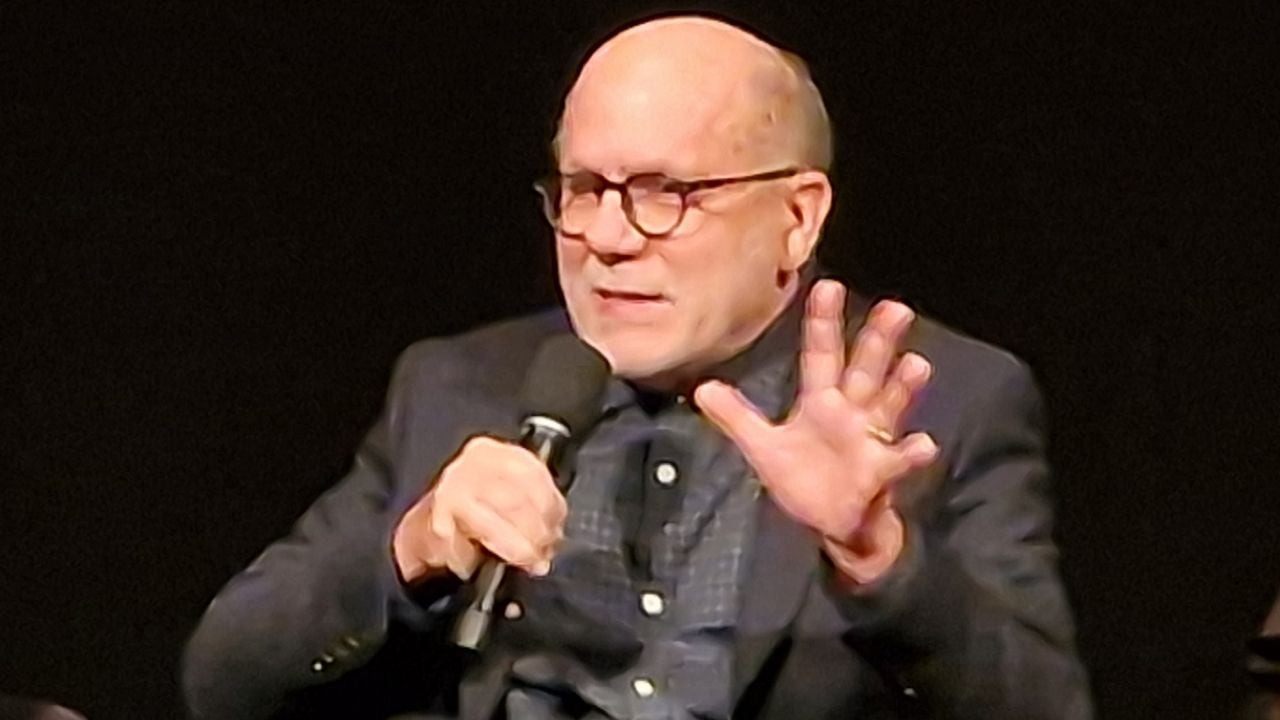
And of course: that’s the goal, right? In my work I don’t want the audience to notice my work or even notice that anything has been done to the sound. For you, it should be about the world the characters find themselves in. My job is to create this world in such a way that the audience can empathize with the characters, really identify with them. If I succeed, you get the feeling that you sympathize with these people, are close to them, spend time with them – and thus understand them better.
So my goal from the beginning was to involve the audience in the sound. We didn’t synthesize anything or anything like that. All the sounds we used were created and recorded in a very classic and practical way.
How a sound makes you feel an explosion
Richard King: Such a nuclear explosion is not a chemical explosion, but a super chain reaction that takes place within a millisecond or two. That’s why I thought the pressure wave must be like a wall. It should feel like you’re being hit by a solid object. So I wanted to convey a kind of very sharp, very hard, very violent impact.
I am very interested in the original eyewitness accounts. All were interviewed within a day of the test. In these very fresh descriptions, almost everyone mentioned sound in addition to visual elements such as white light – and they described it in an interesting and unusual way. It wasn’t just a big bang, it sounded like a passing freight train or thunder – but not natural thunder, but man-made thunder. So I knew it had to sound unique somehow.
Of course, from a technical point of view, there are only a few things you can do to achieve the effect you describe. You can use certain frequencies and certain specific speakers in the speaker array. We worked on it a lot until we achieved an effect where it felt like your pants were shaking when the bomb went off.
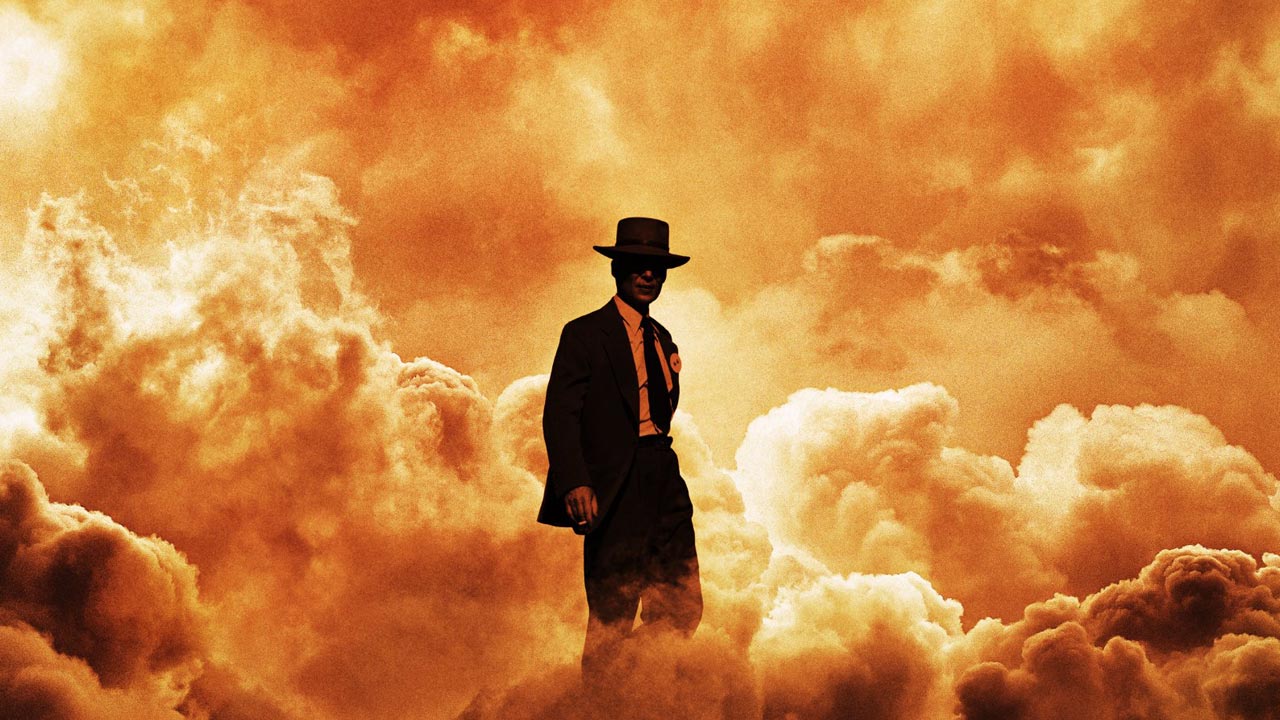
Richard King: Of course, Chris didn’t make a documentary. But I still think it’s always good to have some insight into the facts. So I did a lot of research and read a lot of first-hand accounts of people’s experiences. This gave me a better idea of what people were feeling emotionally.
A bang with delay
Richard King: Of course, that was primarily Chris’s decision on how he ultimately designed the section. We only hear the explosion when the explosion wave hits the bunker. That’s true, but at the same time it’s quite counter-intuitive. Because you actually expect to hear the bang when the lights go out.
This delay brings a lot: the moment is a little surprise for the audience and gives them the opportunity to process the miracle that has just happened, the shock, wonder and awe of it, without being overwhelmed.
Just hearing Oppenheimer’s breathing, the small movements and the production sound gives you as an audience a visceral feeling of what Oppenheimer must have felt. It shows disbelief at what he did.
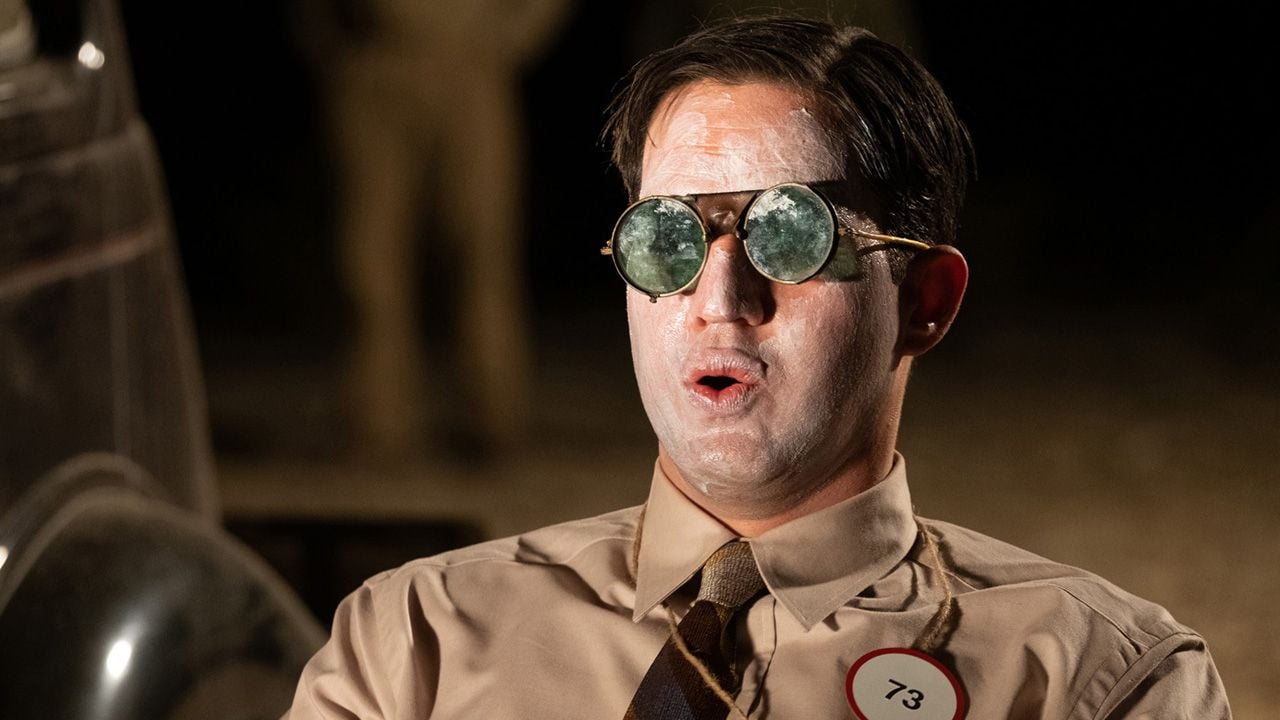
Richard King: Yes, “Oppenheimer” is a thriller. The film is said to be very similar to the tension the scientists felt while working on this experiment. They have completely ignored in their minds what will happen when they finish building. To them it was a science experiment.
We also cut the sound very abruptly whenever the scene changes. We tried to give each location change a different, specific feel. The most important thing was to look at each shot individually and try to find a sound and of course a musical score that captures that exact moment and setting. And in doing so, you also move the story forward sonically by drawing inspiration from visual elements.
How the sound can let the air out
Richard King: At that moment it was as if all the air had been drained from the situation. The scientists are no longer needed. They have done their part. They are being told to step aside now and let the “big boys” take matters into their own hands.
And we also tell a lot about that through the music. It’s like the thriller ends. The characters are in a state of limbo; they no longer know what their role is.
“Oppenheimer” on Blu-ray at Amazon*
To achieve this we did a few subtle things with the sound. For example, we see the chains hitting the truck as it drives away. We carry the sound into the next scene, as if it were only present in Oppenheimer’s imagination, in his head.
But most of all, it becomes very quiet at this moment – just as the base became very quiet. We found the whole thriller section very busy at Los Alamos. There is an incredible amount of activity. We constantly have noises of people and vehicles in the background. These always say: this is a very, very active place. But suddenly that goes away, it becomes very quiet. Everyone did their job. They are now waiting for things to come.
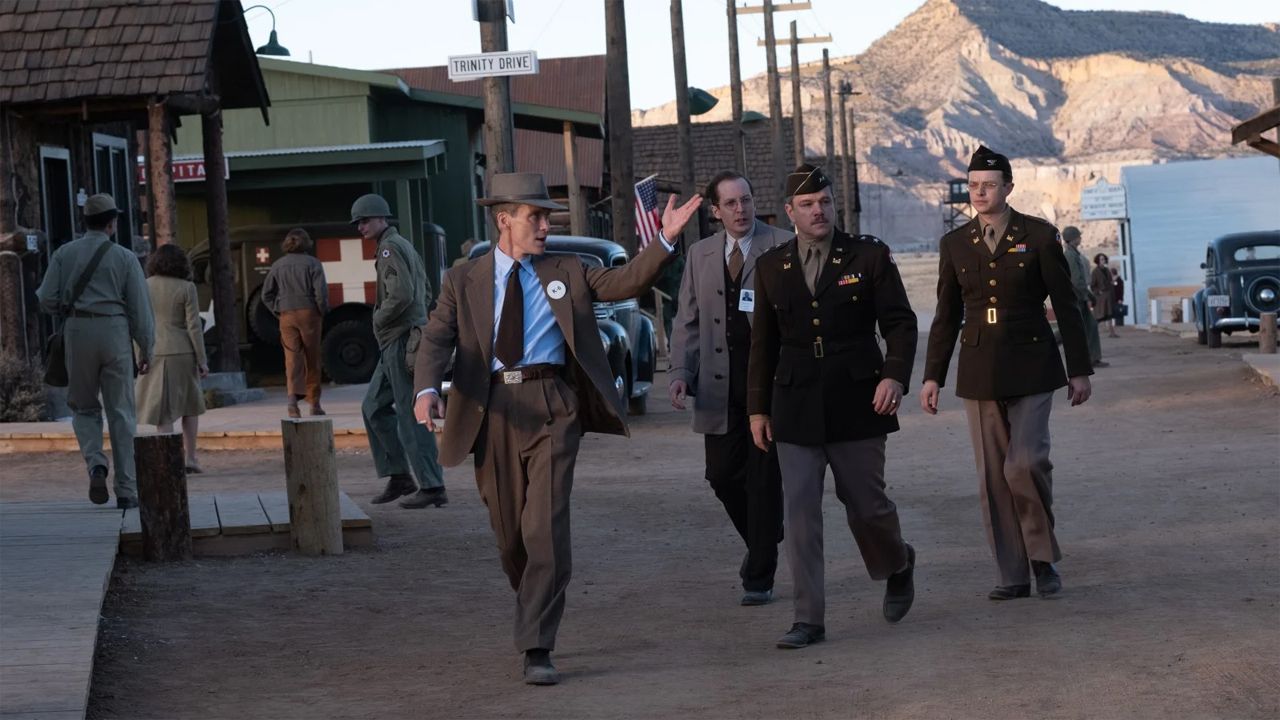
Richard King: This is a very long development process. First of all, Ludwig brought the complete score and I brought a complete sound design. And then it’s about voting. But Chris is the driving force. He determines what is most effective for the audience at what time. And it goes back and forth. It was probably six or seven very intense weeks of mixing and experimenting until we finally got to the point where we are now: which I think is a pretty good combination of music and sound design.
Personally, I think of the score as the sounds the audience hears and my sound design as the sounds the characters hear. And it’s about both working together effectively. The ideal is that the sound of the real world around the characters feels like you are in their world with them. Music, which I think we unconsciously separate from noise, works on a different level.
Does “Oppenheimer” sound just as phenomenal at home?
Richard King: As a sound designer, I am primarily responsible for producing the sounds themselves – this is independent of the format. But our mixers Gary Rizzo and Kevin O’Connell reworked the sound for the home theater release. In the end, Gary only had to make subtle adjustments.
We don’t have Dolby Atmos sound here, but rather classic 5.1 and that translates well not only to a real home theater system, but even to stereo. Chris and I specifically monitored this stereo version so that “Oppenheimer” will sound great in your home. So we have created really special mixes – for IMAX, for regular cinema and now again for home cinema.
Author: Björn Becher
Source : Film Starts
I am Dawid Malan, a news reporter for 24 Instant News. I specialize in celebrity and entertainment news, writing stories that capture the attention of readers from all walks of life. My work has been featured in some of the world’s leading publications and I am passionate about delivering quality content to my readers.







